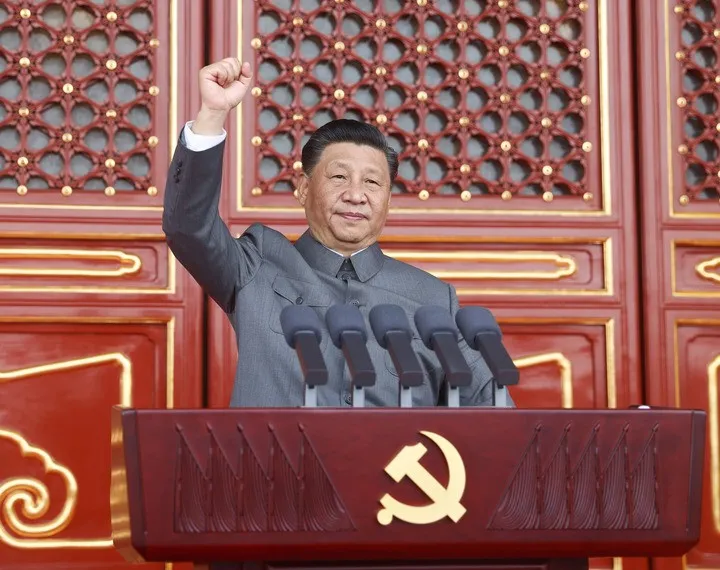China’s surveillance industry has expanded significantly in the past few years, both domestically and globally. With the excessive technological advancement made in recent decades, Beijing’s surveillance industry has successfully integrated local companies into playing a crucial role in China’s global surveillance ambitions. Over and above from using surveillance technology upon its own populations, the Communist Party of China (CPC) has been using these strategies to quell dissent in different countries too. Repressive actions such of directly interfering in domestic affairs of sovereign countries along with spying over government officials, the CPC seeks to be leading the global surveillance drive to supremacy.
Monitoring their own: The Party’s domestic surveillance practices
The surveillance system within China has gone from bad to worse with Chinese authorities showing a high-handed approach against any violators of restrictions that have been imposed within the country. The iron-fisted approach by the administration in regions such as Xinjiang, Tibet and Hong Kong have instilled a sense of fear and anger in the people of the country and has left millions in distress. There have also been concerns that Chinese surveillance methods seek to reinforce discriminatory practices and profiling based on factors such as ethnicity, religion and more importantly political beliefs. Minority groups such as Uighur Muslims in Xinjiang and Buddhist monks in Tibet have also been detained based on such practices leading to human rights abuses and widespread concerns on cultural and religious repression under the current Chinese leadership.
Needless to state that China has been working on various methods to keep high intensity surveillance rampant upon citizens it deems as rebellious. It is well recorded that as early as in 1990, the Chinese State Council approved an initiative to establish a national information system which included the Golden Shield program. The initiative was launched in 1998 with the primary objective of creating a completely digitalized public security sector through a national surveillance network upgrading the state’s capabilities in the security domain. Even though it was officially stated to be designed for the purpose of dealing with crimes in the country, it has quite openly been used for other means.
China’s African strategy
However, China’s bid to expediate monitoring capabilities and technology is not specifically intended for domestic purposes. The CPC has been constantly engaging with domestic tech firms for exporting these technologies to under-developed and developing countries who seem to be favouring the Belt and Road Initiative (BRI). Currently, Chinese companies have supplied AI surveillance technologies to thirty-six countries who have signed up for BRI projects, majorly in Africa and Europe.
The case of Chinese entities stealing sensitive data from the African Union’s building in Addis Ababa, Ethiopia is a lesson that should be learned for all African and European countries that have installed such equipment from Chinese firms.
Moreover, in a report published by the Heritage Foundation, it was revealed that China has constructed and renovated around 186 sensitive African government buildings, 24 presidential buildings, 26 parliaments and parliamentary offices, 32 military offices along with many other highly sensitive infrastructures. Furthermore, Beijing has also been facilitating the 4G network in Africa of which 70% has already been built and is planning to deploy 5G network soon in the whole continent. This should come as an alarming concern to all major countries that have partnered with Beijing in such developmental practices as Chinese intentions have not always been friendly.
In recent years, Chinese firms have been partnering with local administration in various African countries for technology transfers too. In Zimbabwe, for example, the government has associated with Cloud Walk, a technology firm based in Guangzhou China, to implement a large-scale facial recognition program. This initiative has drawn significant criticism from human rights activists, who have argued that collaborating with the Chinese firm pose substantial risks to citizens’ data security and the protection of biometric information, which could be exploited by Chinese authorities. Likewise, in Uganda the police force acquired AI-enabled CCTV systems from Huawei leading to concerns among local citizens and activists.
These concerns rightfully are rooted in the misuse of facial recognition technology, which has reportedly led to the imprisonment of over 836 supporters of opposition leader Bobi Wine. The situation has raised serious questions about the true intentions of Chinese involvement, with many suggesting that China’s aim may be to exploit local political rivalries rather than to address the rising crime rates, which was the program’s original justification.
Thus, least to state, Chinese digital technologies have equipped authoritarian governments in Africa with tools to monitor opposition and suppress dissent. The lack of robust regulations governing digital technology in Africa has left these nations vulnerable to invasive surveillance practices, potentially leading to the erosion of citizens’ rights. Thus, it is vitally important for the sovereignty of the countries in the continent that such practices be kept in check especially given Beijing’s history of using its surveillance infrastructure for espionage purposes.

